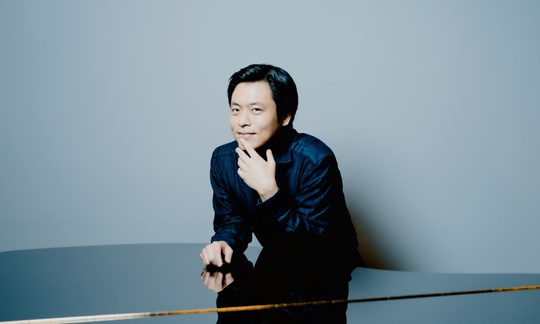Beethoven Piano Concerto Cycle I

Sunwook Kim, piano and conductor
Chamber Orchestra of Europe
Ludwig van Beethoven's five great piano concertos within 24 hours: This not only promises a uniquely intense, magnificent experience for the audience, but also represents a challenge that not many pianists can feel up to. The internationally acclaimed Korean musician Sunwook Kim is one of them - and even takes on this task in the dual role of soloist and conductor of the Chamber Orchestra Europe. Under Mozart's own pianistic hands, the piano concerto had developed into the most ambitious genre of concertante instrumental music in Viennese classical music - but even the young Beethoven knew how to assert himself against his overpowering role model and then lead the piano concerto to hitherto unheard-of greatness. Pomp and panache, tragedy and wit, intimacy and drama: Beethoven's five piano concertos encompass the whole world of the classical dialog between piano and orchestra, reaching into romantic realms.
Click here for Part II.
Ludwig van Beethoven was 17 years old when he wrote the oldest of his five great piano concertos: He begins this B major concerto with a bipolar theme à la Mozart, but then swirls its components through the air à la Haydn - and finds what he is doing quickly his own style. He enjoyed playing this small, travel-friendly concert at the time and continued to refine it. But when he was supposed to make his debut as a pianist in front of the Viennese public at the Burgtheater in 1795, he really wanted to do it with timpani and trumpets - with the then brand new, more magnificent and larger concerto in C major. This was also given priority in printing and number 1. Beethoven would then strike a different, intimate, even romantic tone in the G major concerto: it begins surprisingly with a cantabile piano solo that immediately bathes the orchestra in a completely different harmonic light. Not only the dramatic dialogue of the second movement, but the entire work is connected to the legend of Orpheus and Eurydice, it is said: fantastic music that is rooted in mythical origins.
With friendly support by:







